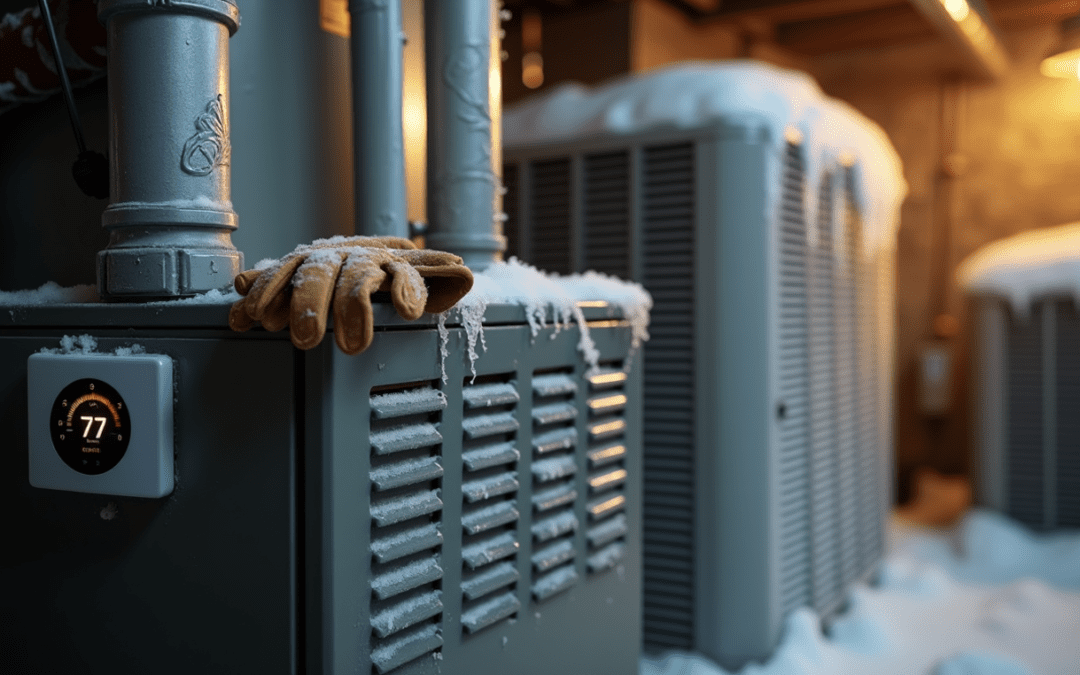Most furnaces last only 15 to 20 years. Our experience helping homeowners spot failing HVAC systems shows that many people don’t deal very well with critical system problems until it’s too late.
Early Warning Signs of HVAC Trouble
Your HVAC system sends clear warning signs before it breaks down completely. These early warnings could save you from emergency repairs that get pricey and help avoid uncomfortable temperature changes in your home.
Unusual Noises Signal Trouble
Your HVAC unit makes strange sounds when problems start developing. Clicking sounds at startup usually mean electrical problems, while screeching or squealing suggests pressure problems or belt issues. On top of that, buzzing sounds often point to electrical concerns.
Temperature Inconsistencies Throughout Your Home
When some rooms feel too hot or cold compared to others, your HVAC system might have problems. Dirty ducts, clogged filters, or leaky ductwork can restrict airflow and cause these temperature differences. Your thermostat might need adjustment because it’s not reading temperatures correctly, which leads to uneven heating or cooling throughout your home.
Unpleasant Odors
Different smells point to specific HVAC problems that need attention. A musty “dirty sock” smell usually means mold or bacteria has built up on your evaporator coil. Burning smells could indicate electrical problems that need immediate attention – turn off your system and call professionals right away.
Winter Stress: How Cold Weather Accelerates HVAC Failure
Winter puts huge demands on heating systems. Your HVAC unit works non-stop to keep indoor temperatures comfortable as temperatures drop. This heavy workload strains equipment components. Hidden problems often turn into major failures during this time.
Energy Consumption Spikes
Your winter energy bills can tell you a lot about system health. HVAC systems use more energy to curb the cold in winter months. But unusual spikes in utility costs often mean your system struggles with efficiency. These issues come from frozen parts, airflow problems, or mechanical failures.
Snow and Ice Buildup Dangers
Snow around outdoor units creates serious trouble. Ice and snow covering exterior parts can trigger emergency shutdowns as the system freezes. Blocked outdoor units have to work twice as hard with limited airflow. This can cause short-circuits and early burnout.
Why Waiting Until Spring Can Cost You More
Your HVAC repair bill could skyrocket if you wait until spring to fix problems. Small issues usually turn into major system failures that cost a lot more to repair.
Emergency Repair Premium
HVAC emergency service calls come with hefty price tags. Technicians charge premium rates during winter and summer peak seasons—sometimes two or three times their normal hourly rate. Late-night emergency repairs can cost between $140 and $210 per hour at minimum, reaching $400 to $600 at the higher end.
System Lifespan Reduction
Your HVAC system should last 15-20 years with regular maintenance. The system needs replacement much sooner without proper care. The “5,000 Rule” helps make smart repair decisions: multiply your unit’s age by repair costs—replacement makes more sense than repair if the total exceeds $5,000.
Conclusion
Your HVAC services in Fresno experts know this allows you to focus on what really counts – creating lasting memories with loved ones. These temperature management techniques will turn your gatherings from temperature battles into perfectly balanced celebrations.
Ready to experience the maximum comfort and efficiency for your HVAC needs? Contact your HVAC contractor in Fresno, Maximum Air today at (559) 222-0733 and let our expert team take care of all your heating and cooling requirements. Don’t settle for anything less than the best – choose Maximum Air for superior service, reliable solutions, and unmatched customer satisfaction. Call us now and discover why we are the trusted choice for HVAC services in Fresno.


